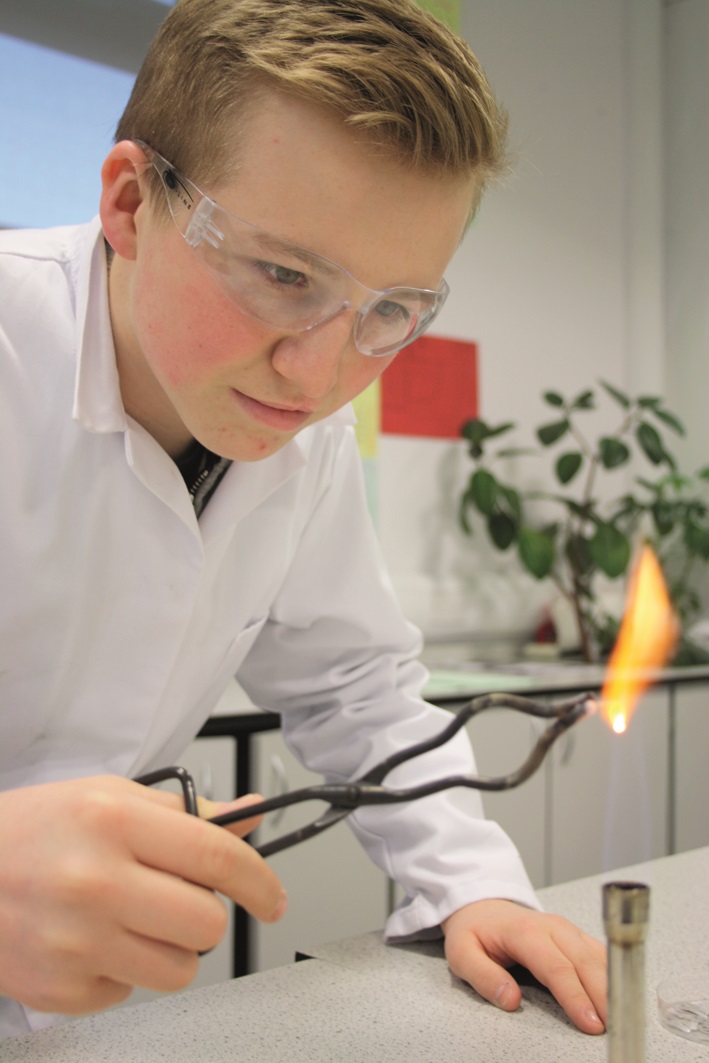
Chemistry
Intent Statement
Science is a multi-faceted subject which encompasses numerous skill sets. Students learn:
· Transferable skills such as scientific numeracy including collecting and displaying data, graphical skills and data analysis.
· Investigative skills- promoting questioning and reasoning of the world around them.
· To participate in debates around numerous ethical issues such as; genetic testing and cancer treatment.
· Practical work deepens students understanding of the relevance of science through engaging activities and allowing students to apply their understanding and to broaden their general knowledge.
· Science also offers opportunities to consolidate the whole school curriculum with cross links between many subjects including; geography, math, food sciences, PE and history.
Key Stage 5
We deliver a Science curriculum for students aged 11-19 with practical Science at the core of our lessons. Students gain hands on experience and develop an appreciation and understanding of key concepts allowing them to develop a clearer understanding of the world around them. Science underpins the modern world from pioneering medical techniques, developing sanitary water and understanding the Physics needed to commandeer Space Exploration.
At Key Stage 5 we offer a range of post-16 qualifications to cater for a range of interests and abilities including A-level Biology, Chemistry, Physics and a BTEC in Human Biology.

A Level Chemistry
Exam board: AQA (Year 1 AS, Year 2 A2)
Entry requirements: GCSE grade 6 in Science, English and Maths
Assessments:
Year 1 – 2 exams:
Paper 1 and 2: Physical Chemistry 1 and Inorganic Chemistry
Year 2 – 3 exams
Paper 1: Year 12 content revisited
Paper 2: Organic Chemistry and Physical Chemistry 2
Paper 3: Synoptic (covering content over the 2 year programme)
Skills gained
Students will gain a broad range of Chemistry knowledge building on that gained from GCSE, using examples from Chemical Interactions and how they are used within Science and Industry to apply their knowledge to explain how complex Chemical processes work. Students will complete 12 required practicals over the 2 years which will give them key laboratory skills in an independent setting. These practical’s are assessed and lead to an additional accreditation recognised by universities.
|
Year 12 |
Year 13 |
|
Atomic Structure |
Alkanes and Halogenoalkanes |
|
Bonding |
Alkenes |
|
Energetics |
Alcohols and Organic Analysis |
|
Kinetics and Equilibrium |
Thermodynamics |
|
REDOX |
Acids, Bases and Buffers |
|
Periodicity |
Transition Metals |
|
Group 1 Alkali Metals |
Aromatic Chemistry and Amines |
|
Group 7 The Halogens |
Amino Acids, Proteins and DNA |
Learning Journeys
| Year 12 | Learning Journey - Chemistry - Year 12.pdf |
| Year 13 | Learning Journey - Chemistry - Year 13.pdf |
